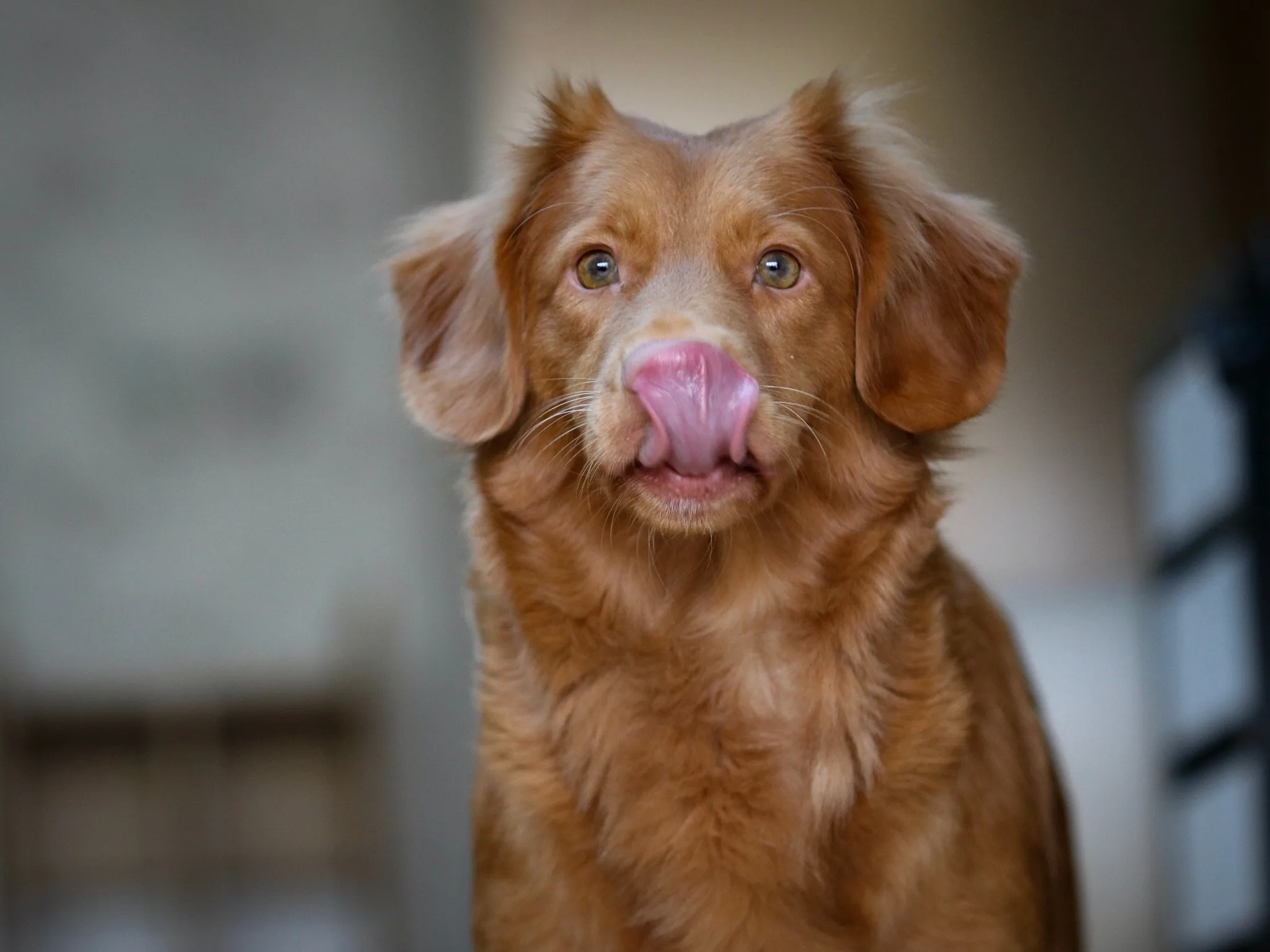Why Do Dogs Smack Their Lips? Dogs have a language of their own, and sometimes, their behaviors leave us both fascinated and curious. One such behavior that often catches our attention is lip smacking. Whether it’s after a meal, during relaxation, or at unexpected times, dogs engage in lip smacking for various reasons. In this article, we’ll delve into the world of canine communication, explore the potential meanings behind lip smacking, and provide answers to common questions about this intriguing behavior.
For more about dogs click here
The Multifaceted Behavior of Lip Smacking
Lip smacking, characterized by the sound and motion of a dog’s lips moving against each other, is a behavior that can hold different interpretations depending on the context in which it occurs. While it might appear simple, lip smacking can convey a range of emotions and messages.
Potential Reasons for Lip Smacking
- Digestion and After a Meal: Dogs often lip smack after eating as a way to clean their lips and mouth. It’s a natural response to remove any food residue that might be left behind.
- Sensory Stimulation: Lip smacking can be a result of sensory stimulation, especially when a dog encounters new scents or flavors. Dogs have an acute sense of smell, and exploring odors can lead to lip smacking.
- Relaxation and Contentment: Many dogs engage in lip smacking when they’re relaxed and content. It might be accompanied by other relaxed behaviors such as stretching, sighing, or lying down.
- Anticipation and Excitement: Dogs might lip smack when they’re anticipating something enjoyable, such as a treat, a walk, or playtime. This behavior can be linked to heightened excitement.
- Communication: Lip smacking can also be a way for dogs to communicate. In some cases, it might be a response to verbal cues or an attempt to interact with their human companions.
Addressing Common Questions
Q1: Why does my dog smack his lips when relaxed? Lip smacking during relaxation is likely a sign of contentment. Dogs often engage in this behavior when they’re comfortable and at ease.
Q2: Why does my dog smack his lips at night? Lip smacking at night might be a response to sensory stimulation or a reaction to dreams or sleep-related movements.
Q3: Why do dogs smack their lips when you talk to them? Some dogs may lip smack in response to verbal cues or the excitement of interacting with you. It’s a form of communication and engagement.
Q4: What is the meaning of lip smacking? Lip smacking can convey relaxation, anticipation, communication, sensory stimulation, or a combination of these factors, depending on the context.
Q5: Is lip smacking a symptom of anxiety? Lip smacking is generally not a primary symptom of anxiety in dogs. However, if it’s accompanied by other signs of anxiety, consulting a veterinarian or animal behaviorist is recommended.
Q6: Does lip smacking always mean hungry? Lip smacking is not always an indicator of hunger. While dogs might lip smack in anticipation of a meal or treat, the behavior can have various meanings.
Understanding Your Dog’s Behavior
To better understand your dog’s lip smacking behavior, consider these factors:
- Context: Observe when and where your dog engages in lip smacking. Note any patterns or triggers.
- Body Language: Pay attention to your dog’s overall body language and other behaviors accompanying lip smacking. This can provide clues to their emotional state.
- Health Check: If lip smacking is accompanied by other concerning symptoms, consult a veterinarian to rule out any underlying medical issues.
External Resources for Canine Behavior
For further insights into canine behavior, consider exploring these resources:
- American Veterinary Society of Animal Behavior – Understanding Behavior
- VCA Animal Hospitals – How to Decode Your Dog’s Behavior
In Conclusion
Lip smacking is a fascinating behavior that showcases the intricate ways in which dogs communicate and interact with their environment. As pet owners, observing and interpreting these behaviors deepens our connection with our furry companions. While lip smacking can convey a variety of meanings, it often reflects a dog’s emotional state, sensory experiences, and responses to the world around them. By paying attention to context, body language, and overall behavior, you can gain valuable insights into your dog’s world and strengthen the unique bond you share. So, the next time you notice your dog engaging in lip smacking, take a moment to appreciate the subtle ways they express themselves and navigate the rich tapestry of canine communication.
